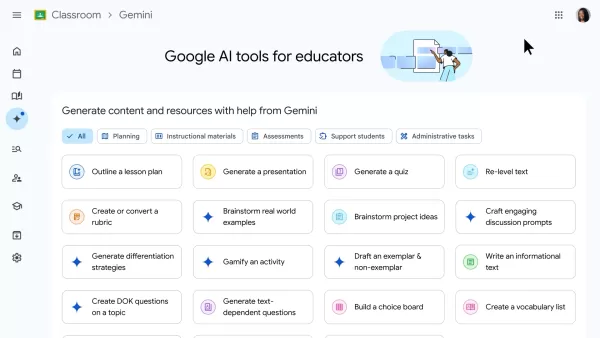AI Ebook Generator: Easily Create and Sell Ebooks
In today's digital world, creating and selling ebooks can be a profitable endeavor for many. Yet, it often demands a lot of time and effort. Thanks to Artificial Intelligence (AI), the process of creating ebooks has become more accessible and streamlined. Let's dive into the world of the AI Ebook Generator, a tool designed to make ebook creation a breeze. We'll explore its features, how it functions, and how you can use it to automate your ebook creation and potentially earn some income.
Key Points
- AI Ebook Generators make ebook creation easier by automating the content generation process.
- While many tools and tutorials exist, they often still require manual input.
- The AI Ebook Generator offers a complete solution, turning the entire process into a matter of minutes.
- The project uses a Python backend with Flask and a Next.js frontend.
- Understanding the backend API is essential for customizing the ebook generation process.
- The AI Ebook Generator was initially a paid product but is now available for free.
Introduction to AI Ebook Generators
What is an AI Ebook Generator?
An AI Ebook Generator is a software tool that harnesses artificial intelligence to automate the creation of ebooks. It uses natural language processing (NLP) and machine learning (ML) to produce content, outlines, and design elements, significantly cutting down the time and effort needed to create a book. These tools are built to streamline the entire ebook creation journey, from concept to completion.

Traditionally, writing an ebook involves extensive research, careful writing, and meticulous editing. AI steps in to help with:
- Generating initial drafts based on a topic.
- Suggesting relevant content and sources.
- Creating chapter outlines.
- Editing and proofreading the text.
The AI Ebook Generator isn't just a writing tool; it's a comprehensive solution that makes ebook creation accessible to everyone, regardless of their writing skills or technical know-how.
The Rising Popularity of AI-Assisted Ebook Creation
The demand for AI Ebook Generators is on the rise, driven by the growing need for digital content and the desire for more efficient creation methods. Several factors contribute to this trend:
- Accessibility: AI Ebook Generators make content creation more democratic, allowing those without extensive writing experience to produce ebooks.
- Efficiency: AI can drastically reduce the time needed to write an ebook, enabling faster content turnaround.
- Cost-Effectiveness: Automating content creation cuts down on the need to hire writers or editors, saving costs.
- Scalability: These generators allow users to quickly produce multiple ebooks, scaling content production efficiently.

The surge in popularity of AI-driven ebook creation is clear on platforms like YouTube, where numerous channels and videos showcase strategies for leveraging AI to earn income through ebook sales. These resources often highlight various automation techniques and tools that simplify the creation process. However, many options still require some manual intervention, which can be time-consuming.
This underscores the need for a more comprehensive solution that can handle the entire ebook creation process autonomously. The AI Ebook Generator aims to meet this need by providing a fully automated experience.
Analyzing the AI Ebook Generator Project
Project Overview: A Comprehensive Solution
The AI Ebook Generator is a web application designed to simplify and automate the process of creating ebooks. Unlike other available tools, this generator provides a complete solution that handles everything from content creation to formatting, allowing users to produce professional-grade ebooks with minimal effort.
Originally offered as a paid product, the AI Ebook Generator is now freely available, a move expected to democratize access to advanced ebook creation tools. This allows a broader audience to benefit from its features. The project serves as a practical example of how AI can be applied to automate content creation, reducing the time and effort typically required to produce ebooks.
There's even a video online showing how to make $264,341/year with AI-generated ebooks (using coding), emphasizing the value of this content.

Technical Architecture: Frontend and Backend Components
The AI Ebook Generator project consists of two main components:
- Frontend: Built with Next.js, a React framework known for its performance and SEO capabilities. The frontend provides the user interface for interacting with the AI Ebook Generator.
- Backend: Built using Python with the Flask framework, it handles the AI-driven content generation and ebook formatting.
This architecture ensures a clear separation of concerns, making the project modular and easier to maintain. The frontend focuses on user interaction and presentation, while the backend manages the complex tasks of content generation and ebook processing.
Next.js Frontend
The frontend, built with Next.js, is responsible for rendering the user interface.

Key components include:
- User Input Forms: Allow users to specify the topic, target audience, number of chapters, and subsections.
- API Integration: Sends requests to the backend API to generate ebook content.
- Display Logic: Renders the generated ebook content in a user-friendly format.
Flask Backend
The backend, built with Python and Flask, handles the AI-driven content generation and ebook formatting. Key components include:
- AI Content Generation: Uses AI models (like Google's GenAI) to generate content based on user inputs.
- Ebook Formatting: Formats the generated content into a professional-grade ebook with chapters, subsections, and a table of contents.
- API Endpoints: Provides API endpoints for the frontend to request ebook generation.
The Flask backend is the core of the AI Ebook Generator, managing all the AI-driven tasks and ebook processing.
Understanding the Python Backend Code
The backend API is written in Python using the Flask framework. The core functionality revolves around configuring and utilizing AI models to generate content. Here's a look at some key parts of the code:
Configuring GenAI
This section configures the GenAI (Generative AI) model.

It involves setting up the API key, generation configurations, and safety settings. The code initializes a Flask app and sets up Cross-Origin Resource Sharing (CORS) to allow requests from the Next.js frontend.
app = Flask(__name__)
CORS(app)
GOOGLE_API_KEY = 'YOUR_API_KEY'
genai.configure(api_key=GOOGLE_API_KEY)
generation_config = {'candidate_count': 1, 'temperature': 1.0, 'top_p': 0.7}
safety_settings = [{'category': 'HARM_CATEGORY_DANGEROUS', 'threshold': 'BLOCK_NONE'},
{'category': 'HARM_CATEGORY_HARASSMENT', 'threshold': 'BLOCK_NONE'},
{'category': 'HARM_CATEGORY_HATE_SPEECH', 'threshold': 'BLOCK_NONE'},
{'category': 'HARM_CATEGORY_SEXUALLY_EXPLICIT', 'threshold': 'BLOCK_NONE'},
{'category': 'HARM_CATEGORY_DANGEROUS_CONTENT', 'threshold': 'BLOCK_NONE'}]
model = genai.GenerativeModel(model_name='gemini-pro', generation_config=generation_config, safety_settings=safety_settings)
Retry Mechanism
This part implements a retry mechanism to handle potential API request failures. It uses a decorator to retry a function multiple times if it encounters an exception. This is crucial for ensuring the robustness of the ebook generation process.
def retry(func):
def wrapper(*args, **kwargs):
MAX_RETRIES = 3
retry_count = 0
while retry_count < MAX_RETRIES:
try:
return func(*args, **kwargs)
except Exception as e:
print(f"Retrying... {e}")
time.sleep(1)
retry_count += 1
print(f"Failed to execute {func.__name__} after multiple retries.")
return None
return wrapper
Exploring Key Functions in the Python Backend
The AI Ebook Generator uses several key functions within its Python backend to manage the ebook creation process. Let's explore these functions in detail:
Generating Content
The `generate` function is responsible for generating content based on a given prompt.

It calls the GenAI model to generate text and returns the response.
@retry
def generate(prompt):
response = model.generate_content(prompt)
return response.text
Generating Chapter Outlines
The `generate_chapter_outline` function creates a chapter outline for the ebook. It takes inputs like the title, topic, target audience, number of chapters, and subsections to generate a JSON-formatted outline.
@retry
def generate_chapter_outline(title, topic, target_audience, num_chapters, subsection_num):
prompt = f"Generate a chapter outline for the ebook with {num_chapters} chapters and {subsection_num} subsections per chapter. The title of the ebook is {title}, the topic is {topic}, and the target audience is {target_audience}."
return generate(prompt)
Generating Chapter Content
The `generate_chapter_content` function generates the actual content for each chapter. It takes the chapter title, outline, topic, and ebook title as inputs to create detailed chapter content. This function leverages the AI model to produce rich, informative content.
@retry
def generate_chapter_content(chapter_title, outline, topic, ebook_title):
prompt = f"Generate the content for the chapter {chapter_title} based on the following outline: {outline}. The topic is {topic}, and the ebook title is {ebook_title}."
return generate(prompt)
Formatting Content into PDF
The `create_pdf` function takes the generated content and formats it into a PDF ebook. It uses libraries like `reportlab` and `platypus` to structure the content into a professional-looking ebook with a table of contents and properly formatted chapters and subsections. This function ensures that the final product is ready for distribution.
These functions work together to automate the entire ebook creation process, from generating outlines and content to formatting the final PDF document. This makes the AI Ebook Generator a powerful tool for anyone looking to create ebooks quickly and efficiently.
How to Use the AI Ebook Generator
Step-by-Step Guide to Creating Your Ebook
Creating an ebook with the AI Ebook Generator involves a few straightforward steps:
- Access the AI Ebook Generator: Once the project becomes freely available, access it through the provided link.
- Input Ebook Details: Fill out the form with the necessary details, including:
- Topic: The main subject of your ebook.
- Title: The title of your ebook.
- Target Audience: Who is this ebook for?
- Number of Chapters: How many chapters should the ebook contain?
- Number of Subsections: How many subsections per chapter?
- Generate Ebook: Click the “Generate Ebook” button to start the AI-driven creation process.
- Download Your Ebook: Once the process is complete, download the generated PDF ebook.
This streamlined process makes ebook creation accessible to everyone, regardless of their technical or writing skills.
AI Ebook Generator Pricing
From Paid Product to Free Resource
The AI Ebook Generator was previously offered as a paid product, but it has now been made freely available. This move provides access to everyone looking to streamline ebook creation. By making it free, AI-driven content creation is democratized, allowing a broader audience to benefit from this powerful tool.
Pros and Cons of Using AI Ebook Generators
Pros
- Significantly reduces ebook creation time.
- Democratizes content creation, making it accessible to everyone.
- Reduces content creation costs.
- Allows for quick scaling of content production.
- Offers customizable parameters for tailoring content.
Cons
- May require fine-tuning to achieve desired quality.
- AI-generated content may lack originality and creativity.
- Requires a solid understanding of the backend API for advanced customizations.
- Relies on the quality and availability of AI models.
Key Features of the AI Ebook Generator
Features for Automated Ebook Creation
The AI Ebook Generator is packed with features designed to automate and simplify the ebook creation process. Here are some of its standout capabilities:
- AI-Driven Content Generation: Uses advanced AI models to generate high-quality, informative content tailored to your specified topic and target audience.
- Automated Chapter Outlining: Automatically creates chapter outlines, saving you the time and effort of manual planning.
- Customizable Parameters: Allows you to specify the number of chapters and subsections, giving you control over the ebook's structure and depth.
- Professional PDF Formatting: Formats the generated content into a professional-grade PDF ebook with a table of contents and properly structured chapters and subsections.

- Retry Mechanism: Implements a retry mechanism to handle potential API request failures, ensuring the robustness of the ebook generation process.
- Cross-Origin Resource Sharing (CORS): Set up to allow requests from the Next.js frontend, ensuring seamless integration between the frontend and backend components.
These features make the AI Ebook Generator a powerful tool for anyone looking to create ebooks quickly, efficiently, and with minimal effort. The combination of AI-driven content generation, automated outlining, and professional PDF formatting sets it apart from other ebook creation tools.
Use Cases for AI Ebook Generators
Applications Across Industries
The AI Ebook Generator has a wide range of use cases across various industries:
- Authors and Writers: Generate initial drafts, overcome writer's block, and speed up the content creation process.
- Educators and Trainers: Create educational materials, online courses, and training manuals quickly and efficiently.
- Marketers and Business Owners: Produce lead magnets, marketing guides, and informational ebooks to attract and engage potential customers.
- Content Creators: Repurpose existing content into ebooks, expanding their reach and audience.
- Small Businesses and Startups: Create professional-grade ebooks for various purposes, even with limited resources.
These are just a few examples of how the AI Ebook Generator can be used to streamline content creation and achieve various goals. The versatility of the tool makes it a valuable asset for anyone looking to create ebooks efficiently.
FAQ
Is the AI Ebook Generator really free?
The AI Ebook Generator is set to become freely available, democratizing access to AI-driven content creation. The decision to make it free allows a broader audience to benefit from its powerful features, reducing costs and opening up opportunities for more users to create ebooks.
What technologies are used to build the AI Ebook Generator?
The AI Ebook Generator is built using a combination of modern web development technologies. The frontend is developed using Next.js, a React framework known for its performance and SEO capabilities. The backend is developed using Python with the Flask framework, handling the AI-driven content generation and ebook formatting.
Can I customize the generated ebooks?
Yes, the AI Ebook Generator offers several options for customization. You can specify the topic, title, target audience, number of chapters, and subsections to tailor the content to your specific needs. Additionally, understanding the backend API allows for even more advanced customizations, as you can modify the prompts and parameters used by the AI model to generate content. However, customization of the appearance may require some more advanced knowledge.
What AI models are used for content generation?
The AI Ebook Generator is configured to use the Gemini Pro model for content generation. However, it can also be configured to use other AI models, such as ChatGPT. The code is designed to be flexible and adaptable, allowing you to switch between different AI models depending on your needs and preferences.
Related Questions
How can I monetize my ebooks created with the AI Ebook Generator?
There are numerous ways to monetize ebooks created with the AI Ebook Generator. Some popular methods include:
- Selling on Online Marketplaces: Platforms like Amazon Kindle Direct Publishing (KDP), Apple Books, and Barnes & Noble Press allow you to sell your ebooks to a wide audience. You can set your own pricing and earn royalties on each sale.
- Selling on Your Own Website: Create your own website or online store to sell ebooks directly to customers. This gives you more control over pricing, branding, and customer relationships. You can use platforms like Shopify, WooCommerce, or Gumroad to set up your online store.
- Using Ebook Subscription Services: Services like Kindle Unlimited allow readers to access your ebooks for a monthly fee. You earn royalties based on the number of pages read by subscribers.
- Offering as Lead Magnets: Provide ebooks as free lead magnets in exchange for email sign-ups. This can help you build your email list and nurture potential customers.
- Selling as Part of a Bundle: Bundle your ebooks with other products or services and sell them as a package. This can increase the perceived value and attract more customers.
- Affiliate Marketing: Include affiliate links in your ebooks to promote relevant products or services. You earn a commission on each sale made through your affiliate links.
These are just a few of the many ways to monetize ebooks created with the AI Ebook Generator. The key is to find the methods that align with your goals and target audience.
Related article
 AI Hardware Innovations: Humanoids and AVs Take Center Stage at TechCrunch Disrupt 2025
TechCrunch Disrupt 2025: The Future of AI HardwareMark your calendars for October 27-29 as TechCrunch Disrupt returns to Moscone West in San Francisco, gathering over 10,000 innovation leaders for three action-packed days of transformative ideas and
AI Hardware Innovations: Humanoids and AVs Take Center Stage at TechCrunch Disrupt 2025
TechCrunch Disrupt 2025: The Future of AI HardwareMark your calendars for October 27-29 as TechCrunch Disrupt returns to Moscone West in San Francisco, gathering over 10,000 innovation leaders for three action-packed days of transformative ideas and
 Google Expands NotebookLM AI Access to Students Under 18
Google has unveiled significant upgrades to its Classroom platform, introducing free Gemini AI tools for educators and expanding access to NotebookLM for students under 18—marking the first availability of these tools for younger users.Educators usin
Google Expands NotebookLM AI Access to Students Under 18
Google has unveiled significant upgrades to its Classroom platform, introducing free Gemini AI tools for educators and expanding access to NotebookLM for students under 18—marking the first availability of these tools for younger users.Educators usin
 ServiceNow Launches Unified AI to Simplify Enterprise Complexity
ServiceNow kicks off Knowledge 2025 by unveiling its groundbreaking AI platform—a unified solution engineered to harmonize disparate AI tools and digital assistants across enterprise environments. By forging strategic alliances with NVIDIA, Microsoft
Comments (5)
0/200
ServiceNow Launches Unified AI to Simplify Enterprise Complexity
ServiceNow kicks off Knowledge 2025 by unveiling its groundbreaking AI platform—a unified solution engineered to harmonize disparate AI tools and digital assistants across enterprise environments. By forging strategic alliances with NVIDIA, Microsoft
Comments (5)
0/200
![RalphSanchez]() RalphSanchez
RalphSanchez
 April 27, 2025 at 6:48:31 PM EDT
April 27, 2025 at 6:48:31 PM EDT
이 AI 전자책 생성기가 정말 대박이야! 나는 항상 내가 직접 책을 써보고 싶었지만 시간이 없었어. 이제 이 도구를 사용하면 쉽게 만들 수 있어. 인터페이스도 친절하고 템플릿들도 좋아. 하지만 커버 디자인 옵션을 좀 더 다양하게 추가해줬으면 좋겠어.


 0
0
![GeorgeTaylor]() GeorgeTaylor
GeorgeTaylor
 April 26, 2025 at 6:56:14 PM EDT
April 26, 2025 at 6:56:14 PM EDT
O gerador de e-books da IA é sensacional! Eu sempre quis criar um livro, mas nunca tinha tempo. Com essa ferramenta, agora consigo fazer rapidinho. O design é ótimo e facilita muito. Só acho que poderia ter mais opções para personalizar a capa do livro.


 0
0
![JerryGonzález]() JerryGonzález
JerryGonzález
 April 26, 2025 at 1:41:13 PM EDT
April 26, 2025 at 1:41:13 PM EDT
AIエブックジェネレーターを使ってみて、びっくりしました!本を書くのは時間がかかると思っていたけど、このツールを使えば簡単に作れる。デザインもシンプルで使いやすいし、売ることもできるなんて最高!ただ、カバーの選択肢がもう少し増えると嬉しいな。


 0
0
![ChristopherTaylor]() ChristopherTaylor
ChristopherTaylor
 April 26, 2025 at 1:03:24 PM EDT
April 26, 2025 at 1:03:24 PM EDT
¡El generador de libros electrónicos de IA es increíble! Siempre quise escribir un libro pero no tenía tiempo. Ahora con esta herramienta puedo hacerlo fácilmente. La interfaz es sencilla y los diseños son buenos. Solo sugeriría más opciones para personalizar la portada.


 0
0
![WillieJohnson]() WillieJohnson
WillieJohnson
 April 26, 2025 at 7:31:02 AM EDT
April 26, 2025 at 7:31:02 AM EDT
This AI Ebook Generator is a lifesaver! I’ve always wanted to write my own ebook but never had the time. Now with this tool, I can easily create one in no time. The interface is user-friendly, and the templates are great. My only suggestion would be to add more customization options for covers.


 0
0
In today's digital world, creating and selling ebooks can be a profitable endeavor for many. Yet, it often demands a lot of time and effort. Thanks to Artificial Intelligence (AI), the process of creating ebooks has become more accessible and streamlined. Let's dive into the world of the AI Ebook Generator, a tool designed to make ebook creation a breeze. We'll explore its features, how it functions, and how you can use it to automate your ebook creation and potentially earn some income.
Key Points
- AI Ebook Generators make ebook creation easier by automating the content generation process.
- While many tools and tutorials exist, they often still require manual input.
- The AI Ebook Generator offers a complete solution, turning the entire process into a matter of minutes.
- The project uses a Python backend with Flask and a Next.js frontend.
- Understanding the backend API is essential for customizing the ebook generation process.
- The AI Ebook Generator was initially a paid product but is now available for free.
Introduction to AI Ebook Generators
What is an AI Ebook Generator?
An AI Ebook Generator is a software tool that harnesses artificial intelligence to automate the creation of ebooks. It uses natural language processing (NLP) and machine learning (ML) to produce content, outlines, and design elements, significantly cutting down the time and effort needed to create a book. These tools are built to streamline the entire ebook creation journey, from concept to completion.

Traditionally, writing an ebook involves extensive research, careful writing, and meticulous editing. AI steps in to help with:
- Generating initial drafts based on a topic.
- Suggesting relevant content and sources.
- Creating chapter outlines.
- Editing and proofreading the text.
The AI Ebook Generator isn't just a writing tool; it's a comprehensive solution that makes ebook creation accessible to everyone, regardless of their writing skills or technical know-how.
The Rising Popularity of AI-Assisted Ebook Creation
The demand for AI Ebook Generators is on the rise, driven by the growing need for digital content and the desire for more efficient creation methods. Several factors contribute to this trend:
- Accessibility: AI Ebook Generators make content creation more democratic, allowing those without extensive writing experience to produce ebooks.
- Efficiency: AI can drastically reduce the time needed to write an ebook, enabling faster content turnaround.
- Cost-Effectiveness: Automating content creation cuts down on the need to hire writers or editors, saving costs.
- Scalability: These generators allow users to quickly produce multiple ebooks, scaling content production efficiently.

The surge in popularity of AI-driven ebook creation is clear on platforms like YouTube, where numerous channels and videos showcase strategies for leveraging AI to earn income through ebook sales. These resources often highlight various automation techniques and tools that simplify the creation process. However, many options still require some manual intervention, which can be time-consuming.
This underscores the need for a more comprehensive solution that can handle the entire ebook creation process autonomously. The AI Ebook Generator aims to meet this need by providing a fully automated experience.
Analyzing the AI Ebook Generator Project
Project Overview: A Comprehensive Solution
The AI Ebook Generator is a web application designed to simplify and automate the process of creating ebooks. Unlike other available tools, this generator provides a complete solution that handles everything from content creation to formatting, allowing users to produce professional-grade ebooks with minimal effort.
Originally offered as a paid product, the AI Ebook Generator is now freely available, a move expected to democratize access to advanced ebook creation tools. This allows a broader audience to benefit from its features. The project serves as a practical example of how AI can be applied to automate content creation, reducing the time and effort typically required to produce ebooks.
There's even a video online showing how to make $264,341/year with AI-generated ebooks (using coding), emphasizing the value of this content.

Technical Architecture: Frontend and Backend Components
The AI Ebook Generator project consists of two main components:
- Frontend: Built with Next.js, a React framework known for its performance and SEO capabilities. The frontend provides the user interface for interacting with the AI Ebook Generator.
- Backend: Built using Python with the Flask framework, it handles the AI-driven content generation and ebook formatting.
This architecture ensures a clear separation of concerns, making the project modular and easier to maintain. The frontend focuses on user interaction and presentation, while the backend manages the complex tasks of content generation and ebook processing.
Next.js Frontend
The frontend, built with Next.js, is responsible for rendering the user interface.

Key components include:
- User Input Forms: Allow users to specify the topic, target audience, number of chapters, and subsections.
- API Integration: Sends requests to the backend API to generate ebook content.
- Display Logic: Renders the generated ebook content in a user-friendly format.
Flask Backend
The backend, built with Python and Flask, handles the AI-driven content generation and ebook formatting. Key components include:
- AI Content Generation: Uses AI models (like Google's GenAI) to generate content based on user inputs.
- Ebook Formatting: Formats the generated content into a professional-grade ebook with chapters, subsections, and a table of contents.
- API Endpoints: Provides API endpoints for the frontend to request ebook generation.
The Flask backend is the core of the AI Ebook Generator, managing all the AI-driven tasks and ebook processing.
Understanding the Python Backend Code
The backend API is written in Python using the Flask framework. The core functionality revolves around configuring and utilizing AI models to generate content. Here's a look at some key parts of the code:
Configuring GenAI
This section configures the GenAI (Generative AI) model.

It involves setting up the API key, generation configurations, and safety settings. The code initializes a Flask app and sets up Cross-Origin Resource Sharing (CORS) to allow requests from the Next.js frontend.
app = Flask(__name__)
CORS(app)
GOOGLE_API_KEY = 'YOUR_API_KEY'
genai.configure(api_key=GOOGLE_API_KEY)
generation_config = {'candidate_count': 1, 'temperature': 1.0, 'top_p': 0.7}
safety_settings = [{'category': 'HARM_CATEGORY_DANGEROUS', 'threshold': 'BLOCK_NONE'},
{'category': 'HARM_CATEGORY_HARASSMENT', 'threshold': 'BLOCK_NONE'},
{'category': 'HARM_CATEGORY_HATE_SPEECH', 'threshold': 'BLOCK_NONE'},
{'category': 'HARM_CATEGORY_SEXUALLY_EXPLICIT', 'threshold': 'BLOCK_NONE'},
{'category': 'HARM_CATEGORY_DANGEROUS_CONTENT', 'threshold': 'BLOCK_NONE'}]
model = genai.GenerativeModel(model_name='gemini-pro', generation_config=generation_config, safety_settings=safety_settings)
Retry Mechanism
This part implements a retry mechanism to handle potential API request failures. It uses a decorator to retry a function multiple times if it encounters an exception. This is crucial for ensuring the robustness of the ebook generation process.
def retry(func):
def wrapper(*args, **kwargs):
MAX_RETRIES = 3
retry_count = 0
while retry_count < MAX_RETRIES:
try:
return func(*args, **kwargs)
except Exception as e:
print(f"Retrying... {e}")
time.sleep(1)
retry_count += 1
print(f"Failed to execute {func.__name__} after multiple retries.")
return None
return wrapper
Exploring Key Functions in the Python Backend
The AI Ebook Generator uses several key functions within its Python backend to manage the ebook creation process. Let's explore these functions in detail:
Generating Content
The `generate` function is responsible for generating content based on a given prompt.

It calls the GenAI model to generate text and returns the response.
@retry
def generate(prompt):
response = model.generate_content(prompt)
return response.text
Generating Chapter Outlines
The `generate_chapter_outline` function creates a chapter outline for the ebook. It takes inputs like the title, topic, target audience, number of chapters, and subsections to generate a JSON-formatted outline.
@retry
def generate_chapter_outline(title, topic, target_audience, num_chapters, subsection_num):
prompt = f"Generate a chapter outline for the ebook with {num_chapters} chapters and {subsection_num} subsections per chapter. The title of the ebook is {title}, the topic is {topic}, and the target audience is {target_audience}."
return generate(prompt)
Generating Chapter Content
The `generate_chapter_content` function generates the actual content for each chapter. It takes the chapter title, outline, topic, and ebook title as inputs to create detailed chapter content. This function leverages the AI model to produce rich, informative content.
@retry
def generate_chapter_content(chapter_title, outline, topic, ebook_title):
prompt = f"Generate the content for the chapter {chapter_title} based on the following outline: {outline}. The topic is {topic}, and the ebook title is {ebook_title}."
return generate(prompt)
Formatting Content into PDF
The `create_pdf` function takes the generated content and formats it into a PDF ebook. It uses libraries like `reportlab` and `platypus` to structure the content into a professional-looking ebook with a table of contents and properly formatted chapters and subsections. This function ensures that the final product is ready for distribution.
These functions work together to automate the entire ebook creation process, from generating outlines and content to formatting the final PDF document. This makes the AI Ebook Generator a powerful tool for anyone looking to create ebooks quickly and efficiently.
How to Use the AI Ebook Generator
Step-by-Step Guide to Creating Your Ebook
Creating an ebook with the AI Ebook Generator involves a few straightforward steps:
- Access the AI Ebook Generator: Once the project becomes freely available, access it through the provided link.
- Input Ebook Details: Fill out the form with the necessary details, including:
- Topic: The main subject of your ebook.
- Title: The title of your ebook.
- Target Audience: Who is this ebook for?
- Number of Chapters: How many chapters should the ebook contain?
- Number of Subsections: How many subsections per chapter?
- Generate Ebook: Click the “Generate Ebook” button to start the AI-driven creation process.
- Download Your Ebook: Once the process is complete, download the generated PDF ebook.
This streamlined process makes ebook creation accessible to everyone, regardless of their technical or writing skills.
AI Ebook Generator Pricing
From Paid Product to Free Resource
The AI Ebook Generator was previously offered as a paid product, but it has now been made freely available. This move provides access to everyone looking to streamline ebook creation. By making it free, AI-driven content creation is democratized, allowing a broader audience to benefit from this powerful tool.
Pros and Cons of Using AI Ebook Generators
Pros
- Significantly reduces ebook creation time.
- Democratizes content creation, making it accessible to everyone.
- Reduces content creation costs.
- Allows for quick scaling of content production.
- Offers customizable parameters for tailoring content.
Cons
- May require fine-tuning to achieve desired quality.
- AI-generated content may lack originality and creativity.
- Requires a solid understanding of the backend API for advanced customizations.
- Relies on the quality and availability of AI models.
Key Features of the AI Ebook Generator
Features for Automated Ebook Creation
The AI Ebook Generator is packed with features designed to automate and simplify the ebook creation process. Here are some of its standout capabilities:
- AI-Driven Content Generation: Uses advanced AI models to generate high-quality, informative content tailored to your specified topic and target audience.
- Automated Chapter Outlining: Automatically creates chapter outlines, saving you the time and effort of manual planning.
- Customizable Parameters: Allows you to specify the number of chapters and subsections, giving you control over the ebook's structure and depth.
- Professional PDF Formatting: Formats the generated content into a professional-grade PDF ebook with a table of contents and properly structured chapters and subsections.

- Retry Mechanism: Implements a retry mechanism to handle potential API request failures, ensuring the robustness of the ebook generation process.
- Cross-Origin Resource Sharing (CORS): Set up to allow requests from the Next.js frontend, ensuring seamless integration between the frontend and backend components.
These features make the AI Ebook Generator a powerful tool for anyone looking to create ebooks quickly, efficiently, and with minimal effort. The combination of AI-driven content generation, automated outlining, and professional PDF formatting sets it apart from other ebook creation tools.
Use Cases for AI Ebook Generators
Applications Across Industries
The AI Ebook Generator has a wide range of use cases across various industries:
- Authors and Writers: Generate initial drafts, overcome writer's block, and speed up the content creation process.
- Educators and Trainers: Create educational materials, online courses, and training manuals quickly and efficiently.
- Marketers and Business Owners: Produce lead magnets, marketing guides, and informational ebooks to attract and engage potential customers.
- Content Creators: Repurpose existing content into ebooks, expanding their reach and audience.
- Small Businesses and Startups: Create professional-grade ebooks for various purposes, even with limited resources.
These are just a few examples of how the AI Ebook Generator can be used to streamline content creation and achieve various goals. The versatility of the tool makes it a valuable asset for anyone looking to create ebooks efficiently.
FAQ
Is the AI Ebook Generator really free?
The AI Ebook Generator is set to become freely available, democratizing access to AI-driven content creation. The decision to make it free allows a broader audience to benefit from its powerful features, reducing costs and opening up opportunities for more users to create ebooks.
What technologies are used to build the AI Ebook Generator?
The AI Ebook Generator is built using a combination of modern web development technologies. The frontend is developed using Next.js, a React framework known for its performance and SEO capabilities. The backend is developed using Python with the Flask framework, handling the AI-driven content generation and ebook formatting.
Can I customize the generated ebooks?
Yes, the AI Ebook Generator offers several options for customization. You can specify the topic, title, target audience, number of chapters, and subsections to tailor the content to your specific needs. Additionally, understanding the backend API allows for even more advanced customizations, as you can modify the prompts and parameters used by the AI model to generate content. However, customization of the appearance may require some more advanced knowledge.
What AI models are used for content generation?
The AI Ebook Generator is configured to use the Gemini Pro model for content generation. However, it can also be configured to use other AI models, such as ChatGPT. The code is designed to be flexible and adaptable, allowing you to switch between different AI models depending on your needs and preferences.
Related Questions
How can I monetize my ebooks created with the AI Ebook Generator?
There are numerous ways to monetize ebooks created with the AI Ebook Generator. Some popular methods include:
- Selling on Online Marketplaces: Platforms like Amazon Kindle Direct Publishing (KDP), Apple Books, and Barnes & Noble Press allow you to sell your ebooks to a wide audience. You can set your own pricing and earn royalties on each sale.
- Selling on Your Own Website: Create your own website or online store to sell ebooks directly to customers. This gives you more control over pricing, branding, and customer relationships. You can use platforms like Shopify, WooCommerce, or Gumroad to set up your online store.
- Using Ebook Subscription Services: Services like Kindle Unlimited allow readers to access your ebooks for a monthly fee. You earn royalties based on the number of pages read by subscribers.
- Offering as Lead Magnets: Provide ebooks as free lead magnets in exchange for email sign-ups. This can help you build your email list and nurture potential customers.
- Selling as Part of a Bundle: Bundle your ebooks with other products or services and sell them as a package. This can increase the perceived value and attract more customers.
- Affiliate Marketing: Include affiliate links in your ebooks to promote relevant products or services. You earn a commission on each sale made through your affiliate links.
These are just a few of the many ways to monetize ebooks created with the AI Ebook Generator. The key is to find the methods that align with your goals and target audience.
 AI Hardware Innovations: Humanoids and AVs Take Center Stage at TechCrunch Disrupt 2025
TechCrunch Disrupt 2025: The Future of AI HardwareMark your calendars for October 27-29 as TechCrunch Disrupt returns to Moscone West in San Francisco, gathering over 10,000 innovation leaders for three action-packed days of transformative ideas and
AI Hardware Innovations: Humanoids and AVs Take Center Stage at TechCrunch Disrupt 2025
TechCrunch Disrupt 2025: The Future of AI HardwareMark your calendars for October 27-29 as TechCrunch Disrupt returns to Moscone West in San Francisco, gathering over 10,000 innovation leaders for three action-packed days of transformative ideas and
 Google Expands NotebookLM AI Access to Students Under 18
Google has unveiled significant upgrades to its Classroom platform, introducing free Gemini AI tools for educators and expanding access to NotebookLM for students under 18—marking the first availability of these tools for younger users.Educators usin
Google Expands NotebookLM AI Access to Students Under 18
Google has unveiled significant upgrades to its Classroom platform, introducing free Gemini AI tools for educators and expanding access to NotebookLM for students under 18—marking the first availability of these tools for younger users.Educators usin
 April 27, 2025 at 6:48:31 PM EDT
April 27, 2025 at 6:48:31 PM EDT
이 AI 전자책 생성기가 정말 대박이야! 나는 항상 내가 직접 책을 써보고 싶었지만 시간이 없었어. 이제 이 도구를 사용하면 쉽게 만들 수 있어. 인터페이스도 친절하고 템플릿들도 좋아. 하지만 커버 디자인 옵션을 좀 더 다양하게 추가해줬으면 좋겠어.


 0
0
 April 26, 2025 at 6:56:14 PM EDT
April 26, 2025 at 6:56:14 PM EDT
O gerador de e-books da IA é sensacional! Eu sempre quis criar um livro, mas nunca tinha tempo. Com essa ferramenta, agora consigo fazer rapidinho. O design é ótimo e facilita muito. Só acho que poderia ter mais opções para personalizar a capa do livro.


 0
0
 April 26, 2025 at 1:41:13 PM EDT
April 26, 2025 at 1:41:13 PM EDT
AIエブックジェネレーターを使ってみて、びっくりしました!本を書くのは時間がかかると思っていたけど、このツールを使えば簡単に作れる。デザインもシンプルで使いやすいし、売ることもできるなんて最高!ただ、カバーの選択肢がもう少し増えると嬉しいな。


 0
0
 April 26, 2025 at 1:03:24 PM EDT
April 26, 2025 at 1:03:24 PM EDT
¡El generador de libros electrónicos de IA es increíble! Siempre quise escribir un libro pero no tenía tiempo. Ahora con esta herramienta puedo hacerlo fácilmente. La interfaz es sencilla y los diseños son buenos. Solo sugeriría más opciones para personalizar la portada.


 0
0
 April 26, 2025 at 7:31:02 AM EDT
April 26, 2025 at 7:31:02 AM EDT
This AI Ebook Generator is a lifesaver! I’ve always wanted to write my own ebook but never had the time. Now with this tool, I can easily create one in no time. The interface is user-friendly, and the templates are great. My only suggestion would be to add more customization options for covers.


 0
0





























